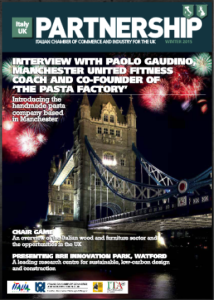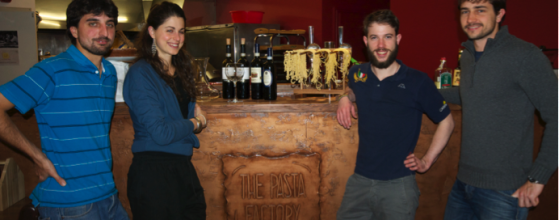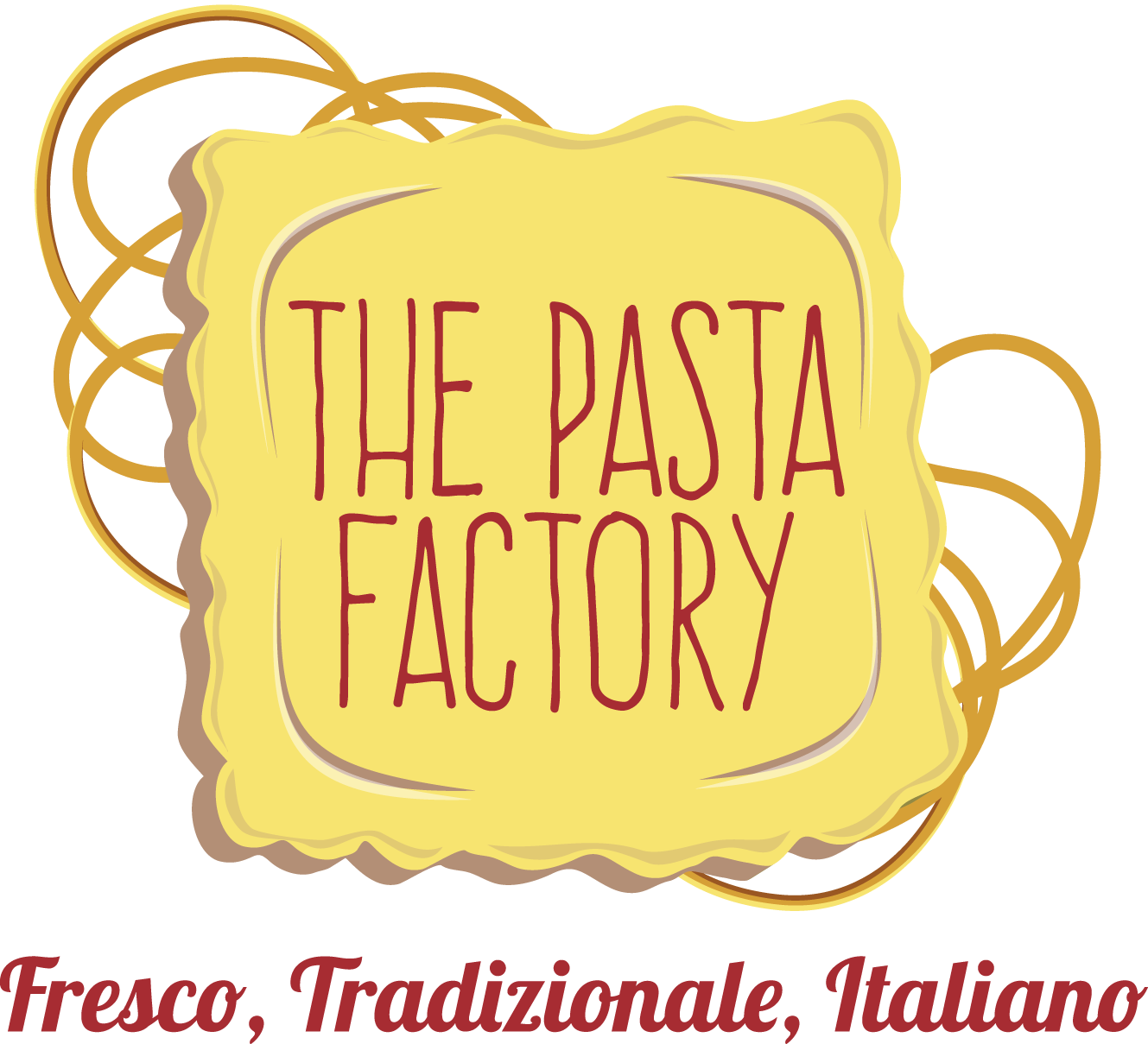
Interview with The Italian Chamber of Commerce and Industry for the UK
Reinventing Investing in the UK
An interview with Paolo Gaudino, sport scientist and fitness coach for Manchester United first team and co-founder of The Pasta Factory.
The number of Italians who decide to invest capital and skills in the UK is constantly growing.
Over the past three years, the flow of Italian investment overseas totalled £1.2 billion with an increase of 44% (Fifth Survey of Italian Investments in the UK).
Those responsible for the trend are mainly young people, often graduates, eager to “reinvent themselves" in a market where Italian quality and creativity are, in many cases, emerging successfully.
Paolo Gaudino, 28, Sports Scientist and Fitness Coach for Manchester United Football Club talks about his latest "reinvention" project in the UK, The Pasta Factory.
- From football to restaurants, how and when was The Pasta Factory born?
It may sound like a cliché but those are the fields in which Italians excel: the football pitch and the kitchen! To be fair, as Italians, both football and food are in our blood. In my case that is particularly true. I moved to the UK 4 years ago in order to finish my Ph.D. in Sports Science, as part of a collaboration between the University of Milan and Liverpool John Moores University. Once I had completed the Ph.D., I got a permanent job at Manchester United in the first team Sports Science department. At the same time 3 friends and schoolmates of mine from Torino (Elisa Cavigliasso, Alberto Umoret and Enrico Princi) decided to leave Italy and join me here in order to learn English properly and gain a new experience abroad. They integrated quickly into the English culture and they found Manchester a really nice place to live. This city offers a lot and they liked it. They quickly found jobs in the food industry (wine bars, restaurants, coffee shops, etc.) and they started to realise how well these types of business were doing here in Manchester. After a while, they started thinking about opening their own business and they asked me to join them in this adventure. We started thinking about what we were able to do, what we could bring from Italy and from our families’ traditions and, the most important thing, what we missed whilst in Manchester. As a result of this thinking, came The Pasta Factory.
- As well as being a core ambassador for Made in Italy in Manchester, what are the other reasons behind the choice to make handmade pasta?
In the late 1800’s, thousands of Italians made new homes amongst the mills and factories in the run down area of Manchester city centre called Ancoats, or “Little Italy” as it became affectionately known. Whilst the inhabitants became the pioneers of the modern day British ice cream industry, they also introduced generations of Mancunian Italians to the city. Today there are over 120 Italian restaurants and pizzerias in Manchester and the surrounding area. The challenge was to find something new, something that was not available in Manchester and something that we ourselves (and as well probably all the Italian residents in Manchester) missed from Italy. Handmade fresh pasta was the answer. We saw similar businesses starting up and doing well in London, and this gave us some confidence. There was nothing like that at the time in Manchester. We think that over the last few years, not only the Italians but also the English and Europeans in general have improved the quality of their diet by looking for fresh ingredients and traditional recipes.
In addition, we decided to find a place in the Northern Quarter, or NOMA, since this area had begun an unbelievable redevelopment. The stats below show the tremendous growth of the NQ4 area; 1,700 apartments in 1998 compared to 14,900, and still growing, in 2015. Finally, in the NQ4 area there are no commercial chains, only independent businesses, and no Italian restaurants at all... so we definitely thought it was the right place for us.
- What were the fundamental steps for opening The Pasta Factory?
The bureaucracy in England is really simple, even for someone like us dealing with our first experience, with no knowledge in this field at all. On the government website everything is really well explained (e.g. how to register a new company, set everything up with regards to the HMRC, registering the trademark, etc.). The first step was to contact a solicitor who quickly explained to us the steps that followed. We then registered the company, we registered the trademark, opened a business bank account, contacted an accountant and in the meantime we started looking for premises to rent. It was difficult for me to manage the time between my work in football and preparation for the business. Football schedules can change at any time; there is a lot of travelling involved, working during the weekends, etc. It was not easy to arrange all the meetings, call phones and so on.
- What were the main difficulties encountered?
The main problem has been, without any doubt, finding premises to rent. We looked around the city centre and the Northern Quarter in particular for more than a year. We also asked for the support of proper experts in this field but nobody could help us. There weren’t too many premises available for rent and few of them wanted to rent to a start up.
- Looking to the future, how might the business evolve?
Our aim is to create a nice place, with proper Italian food and a real, Italian dining atmosphere. We don’t care about opening quickly in different cities. We don’t want to create a chain. We want to keep it simple and authentic. Obviously we want the business to run well; we have various options like providing fresh pasta to other small restaurants and delis, becoming a UK importer of food, handcrafted beer and wine from Piedmont where we have direct contacts with the vineyard and artisan producers.
However, our aim is to keep it a place where we would like to go with friends or family for a relaxed dinner, enjoying proper Italian food and wine. Our aim is to keep it FRESCO, TRADIZIONALE, ITALIANO.
- As a fitness coach, is the consumption of pasta important in the human diet? Does The Pasta Factory menu propose a balance between taste and optimal consumption of pasta?
Of course pasta is important in the human diet. The World Health Organization, Mayo Clinic, Harvard Medical School, US Best Diets, EFSA and many others have established that pasta is a healthy and nutritious food and one of the pillars of the Mediterranean diet, recognised as having World Heritage status by UNESCO. Football players (in Italy as well as aboard) eat pasta almost every day after training sessions and as part of their pre-match meal. Getting the right amount of carbohydrates every day is very important, especially if you practise intense physical activities. So the only thing I can suggest is to regularly practise any kind of physical activity, and then together with your team mates enjoy a nice, fresh “piatto di pasta”.
http://www.italchamind.eu/magazine/winter_2015/index.html
For more information about business opportunities in Manchester, please contact Lucrezia Chiapparino at manchester@italchamind.org.uk
Comments are closed.

